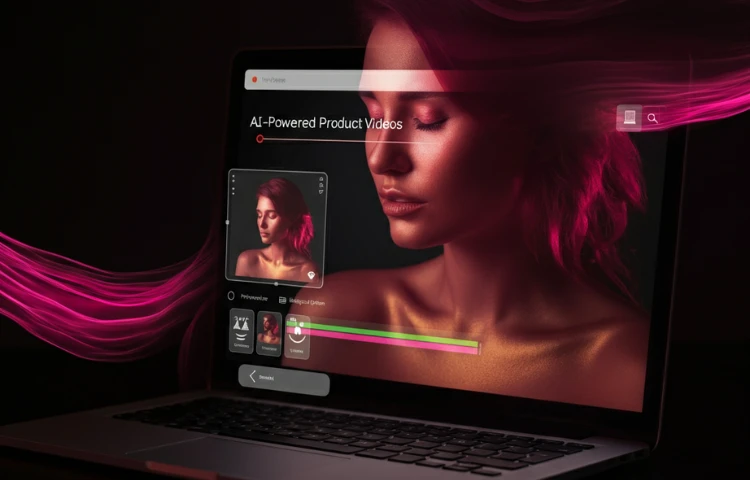

Prefer to listen instead? Here’s the podcast version of this article.
In the rapidly evolving world of eCommerce, generative AI has become a game-changer for product video creation. With its power to automate video production at scale, AI has enabled eCommerce brands to engage customers with dynamic content like never before. Brands now leverage AI tools to produce personalized, data-driven, and visually compelling product videos—boosting customer engagement, driving conversions, and enhancing brand loyalty.
Here, we’ll explore how AI is transforming product video creation in eCommerce and the strategic advantages that forward-thinking brands are reaping. From cost savings to faster content generation, these insights will help you understand why investing in AI for video is a competitive edge in today’s marketplace.
With video content consistently outperforming static images and text across digital platforms, eCommerce brands are increasingly investing in video to enhance customer engagement. According to a study by [HubSpot], 88% of consumers have reported being convinced to buy a product or service after watching a brand’s video. Video offers a visually engaging way to showcase product features, answer common questions, and build trust, all of which are critical in eCommerce. Yet, traditional video production is resource-intensive, often requiring considerable time and budget for filming, editing, and post-production.
AI now changes the game by making video production faster, more affordable, and more scalable. From text-based scripts to full visual renderings, AI-driven tools are capable of creating high-quality videos that brands can use to reach wider audiences and meet the rising demand for digital content.
Several AI tools are available that allow brands to produce videos more easily and affordably. Here’s a look at some of the most popular options currently used in the eCommerce industry:
Each tool serves specific needs, whether it’s creating how-to videos, quick product previews, or in-depth demos. By choosing the right tool, eCommerce brands can optimize video production according to their unique content strategy and goals.
AI-powered videos are not just a trend but a strategy that’s delivering measurable results. Many eCommerce companies are finding innovative ways to integrate AI video tools, as illustrated by brands highlighted in [Brookings Institute] articles. These companies are leveraging AI to create product videos that adapt to customer preferences, personalize content at scale, and even dynamically change in response to real-time feedback.
For example, fashion brands can use AI to create “virtual try-on” videos, where customers can see how a piece of clothing might look on them without visiting a store. Similarly, home appliance brands can use AI to create instructional videos that customers can interact with—such as tutorials that respond to voice commands, helping users troubleshoot common issues in real time.
The rise of AI-generated media also brings ethical and regulatory considerations, particularly around transparency and intellectual property. To maintain trust, brands must clearly indicate when content is AI-generated. Advocate for labeling AI-generated videos and ensuring compliance with data privacy laws.
Brands should also consider the ethical implications of using AI in ways that impact consumer perceptions. While generative AI can produce remarkable results, companies must balance innovation with responsibility to avoid eroding customer trust.
With advancements in AI-powered video creation, eCommerce brands are equipped to meet the demands of a digital-first marketplace. As AI technology continues to evolve, we can expect these tools to become even more sophisticated, offering higher levels of personalization, interactivity, and realism. Brands that adopt AI for video creation early will not only save costs and increase engagement but also set the standard for content innovation in eCommerce.
WEBINAR